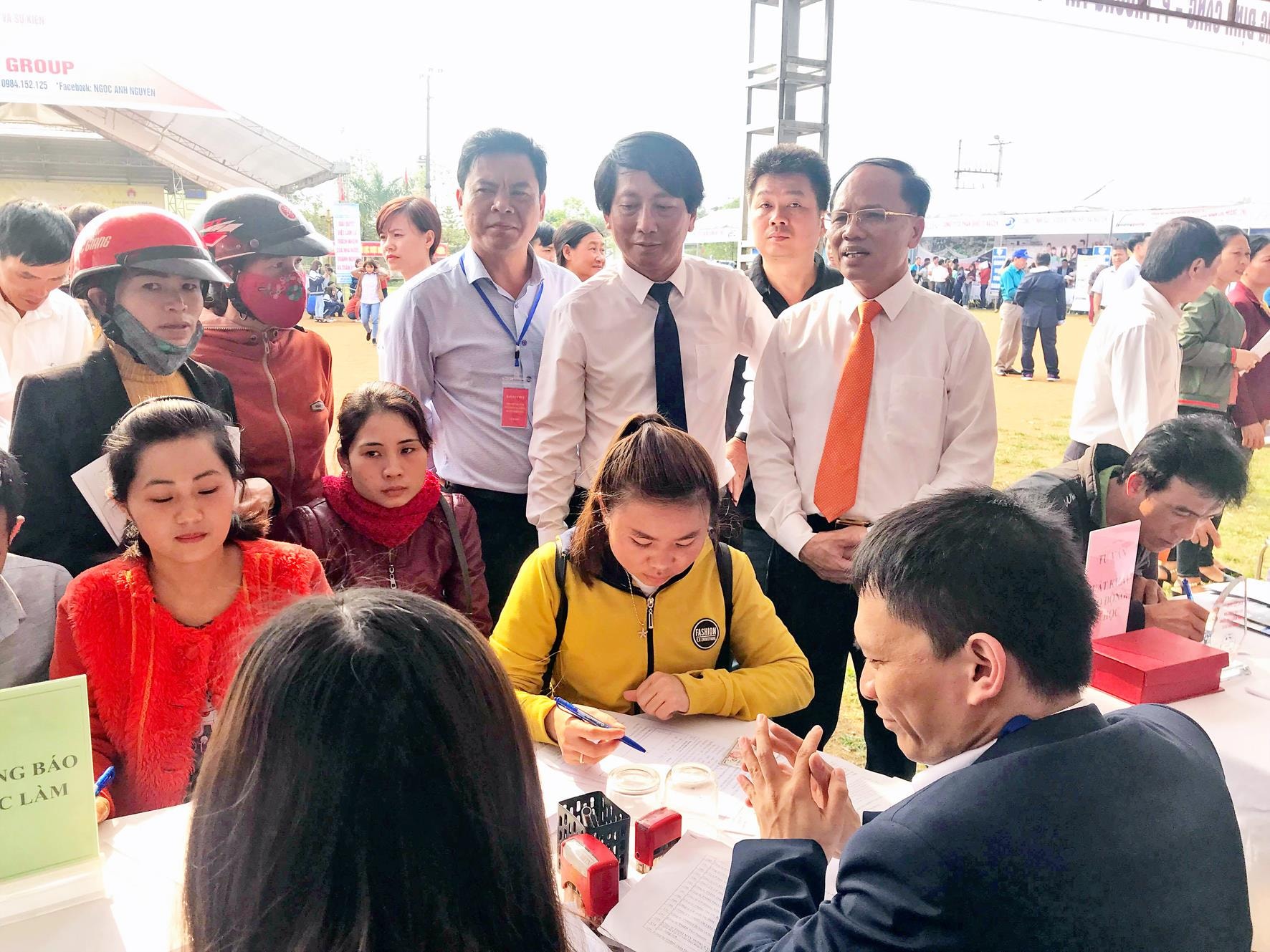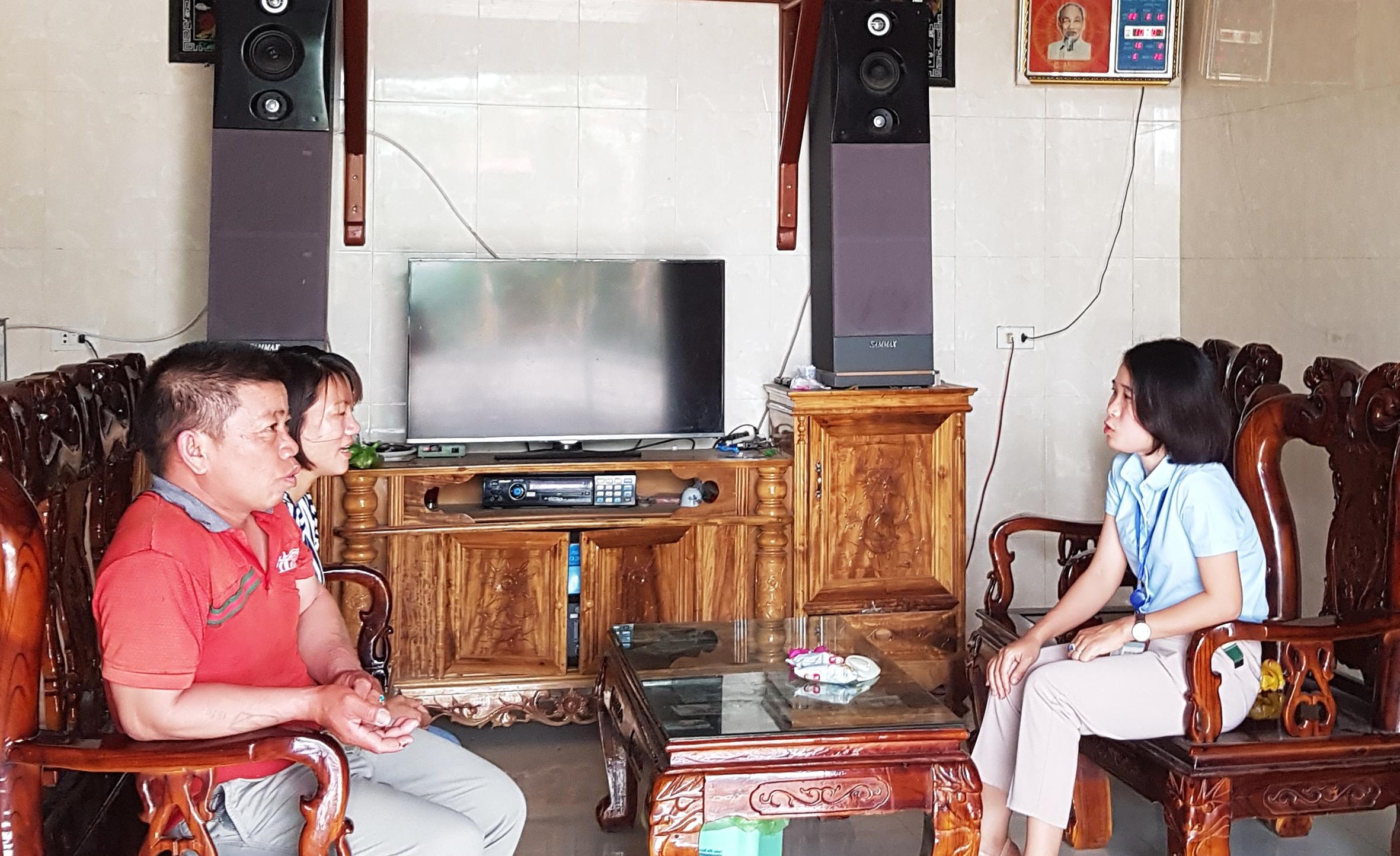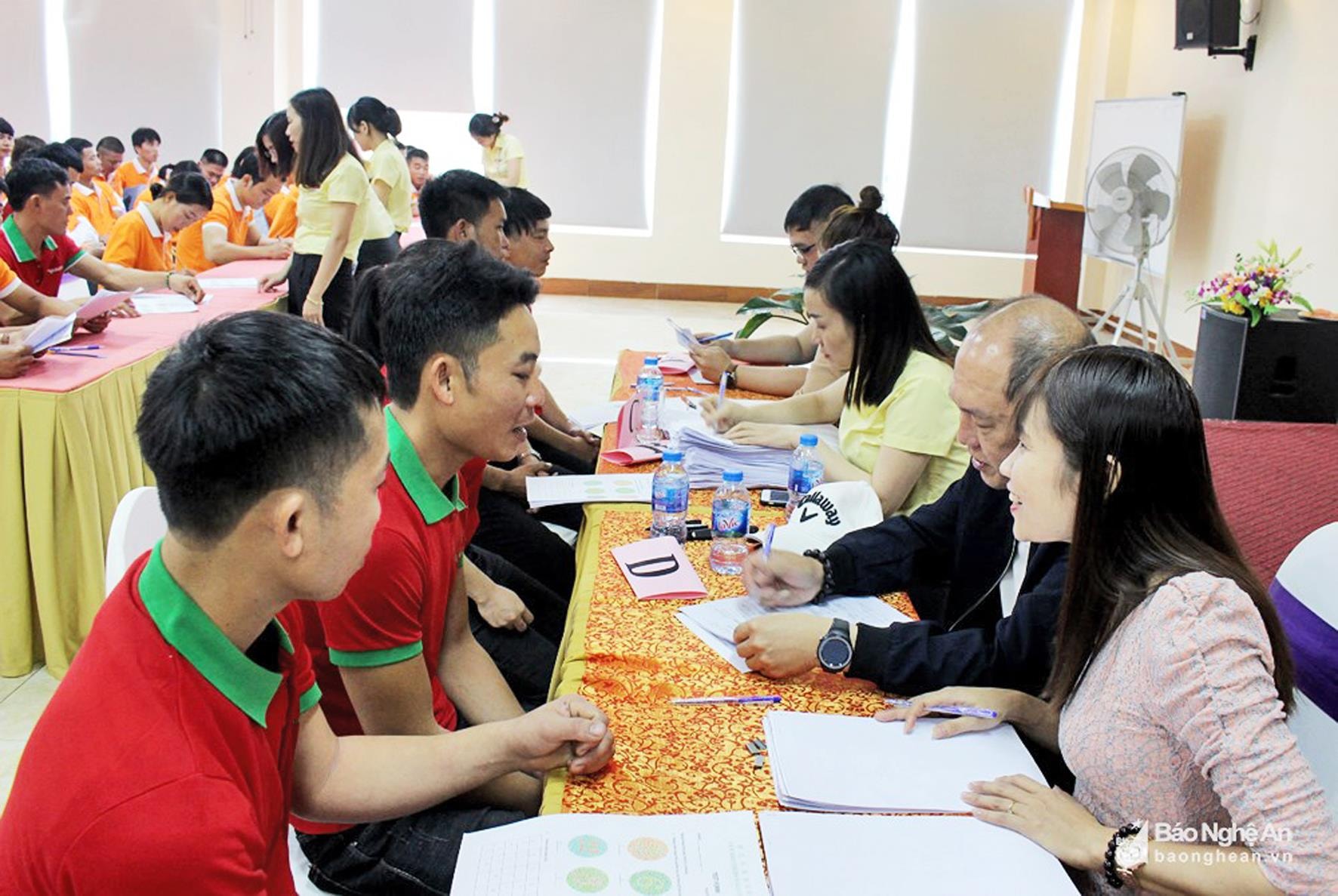Exporting labor and then... unemployment?
(Baonghean) - Most of the workers who return home after their visas expire have received vocational training and hope to find stable jobs. However, with what they have been equipped with, plus the difference in income levels, many workers still want to return to work in other countries.
Continue to work abroad because of not being able to find a job
Although he has taken a Korean language course to be recruited into offshore or nearshore fishing companies in Korea, Luu Dinh Hung (born in 1998) in Hamlet 1, Nghi Tien Commune (Nghi Loc) is still waiting to receive a response from the employment agency he registered with. Because, although he has been back in Vietnam for 3 years, Hung still cannot find a suitable job.
“Many times the whole family invested in shrimp farming but always suffered losses. Even though I had just gotten married and had a small child, I still had to continue looking for opportunities to work abroad, because at home without a stable job and income, I would gradually “lose my capital”.
Luu Dinh Hung (born 1998) in hamlet 1, Nghi Tien commune (Nghi Loc)
 |
| Leaders of the Department of Labor, Invalids and Social Affairs inspected booths at the labor export job fair in Nghia Dan district held in February 2019. Photo: Thanh Nga |
An offshore fisherman like Hung, or a mechanic on a foreign fishing boat, has a stable salary of 50-60 million VND/month. Skilled workers who return home after their contract ends will be called back by their employers if they want to return to work.
According to Hung, if the worker does not change employers or does not jump ship, the employer will call them back and they will receive the same benefits and incentives as before. "If you want to stay close to home, you must have a place to work for a stable income. But in our country, if you go far from shore, you can only work a few seasons a year and the income is very unstable."
According to Ms. Nguyen Thi Bich - Cultural Policy Officer of Nghi Tien Commune, the commune currently has 475 workers working in Taiwan, South Korea, and Japan, mainly in offshore and nearshore fishing. Particularly for the workers working in Japan, most of them work as waiters and construction workers. After their visas expire and they return home, they all have difficulty finding jobs and want to continue working abroad. "Currently, the commune still has 30 workers preparing to leave the country and 50 - 60 more are looking for opportunities to go to countries that need to recruit workers."
Usually, when the term expires, workers will return home, but most of them, after staying at home for about 6 months - 1 year, will look for opportunities to work abroad, because many people cannot develop their trained skills to increase their income. "Simply, the professions are not suitable for local needs, for example, a person skilled in installing electronic components will not be able to open an electronic repair shop because the demand of the people here is low; or when they have capital, it is very difficult for most of them to develop commercial business services because the population is sparse, and the commune is located in a geographical location without trade links with neighboring communes."
Just because there are no jobs, many workers after their visas expire and return home spend all their money, then borrow from friends and relatives to find ways to continue working abroad.
 |
| Mr. Ho Van Hung in Hamlet 7, Nghi Tien Commune has just returned home after 3 years of working in Taiwan but will continue to work abroad because he cannot find a job at home. Photo: Thanh Nga |
When I return to Vietnam, I cannot apply for any company because there are no workers and the production line is different from my old workplace. Therefore, I am looking for a way to apply for your old company.
Mr. Nguyen Van Vuong in An Hoa commune said: “We were hired by a Taiwanese company to install electronic components. At first, we were just sorting and selecting screws of the same type, but then the company trained us and now we can install components like skilled electronic workers. However, when we returned to Vietnam, we could not apply to any company because there were no workers and the production line was different from the old workplace. Therefore, I am looking for a way to apply to the old company on your side.”
What policy?
Ms. Trinh Thi Huyen - Representative of a labor export company said: every year her company recruits 300 - 400 workers to markets such as Taiwan, Japan,... most of them are unskilled workers and are accepted to do jobs such as construction, electronic components, garment, waiters, maids, agriculture... After working for a while, many workers have escaped from their old companies and resided illegally because they are worried that after returning home they will not be able to go abroad to work anymore, because it is difficult to find a job at home.
“A worrying reality is that more and more workers, after returning home, do not know how to take advantage of their skills and accumulated capital. In fact, it is very difficult for them to find suitable jobs in industrial zones or domestic companies and factories, not only because of the salary but also because the jobs do not match their skills.”
 |
| Workers register for overseas labor recruitment at Kazen International Company. Photo: Thanh Nga |
A representative of an electronics company in Bac Vinh Industrial Park said: "In reality, we only recruit skilled workers from vocational schools for important positions in the production line. As for workers who already have skills through overseas labor export, we only consider them as unskilled workers because in reality, they do not have certificates from domestic vocational schools, so it is unreasonable to give them more preferential treatment than unskilled workers."
He also said that usually, workers who apply for an electronic components installation company and have a record of having participated in overseas labor export all want to receive preferential salaries, for example, for ordinary workers, the salary including overtime is only from 3 - 4.5 million VND/month, while for experienced workers, they want to receive from 7 - 10 million VND/month. "This is an inappropriate request, so even though we know they have experience, we still do not accept them. Not to mention, even though they have experience, when they start working in a new production line, they still have to be retrained," he said.
In fact, many workers after returning home were called back by their former employers thanks to their reputation for skills and discipline. In addition, after the agreement under the EPS Program with Korea came into effect, many workers returning home were recruited by Korea at very low cost.
“We clearly identify that labor export is an important solution in solving employment, meeting practical needs, contributing to increasing income and improving skills for workers. However, regarding the policy of creating new jobs for workers after returning home, there are almost no documents from the Central Government that mention this issue.”
Currently, the total number of laborers in the province working abroad for a limited period is over 60,000 people. The amount of money sent back by laborers working abroad in the period 2015 - 2018 is about over 255 million USD/year.

